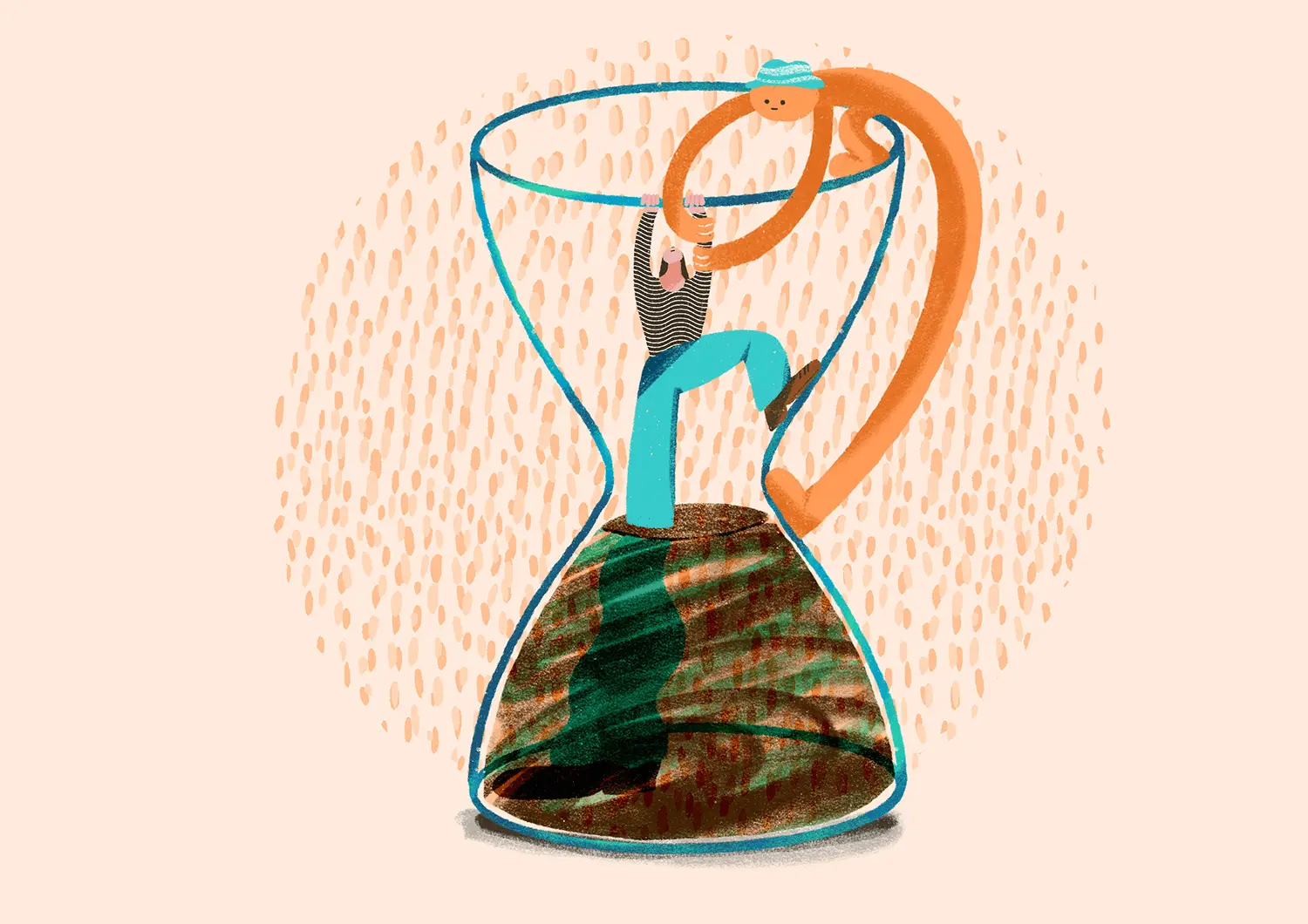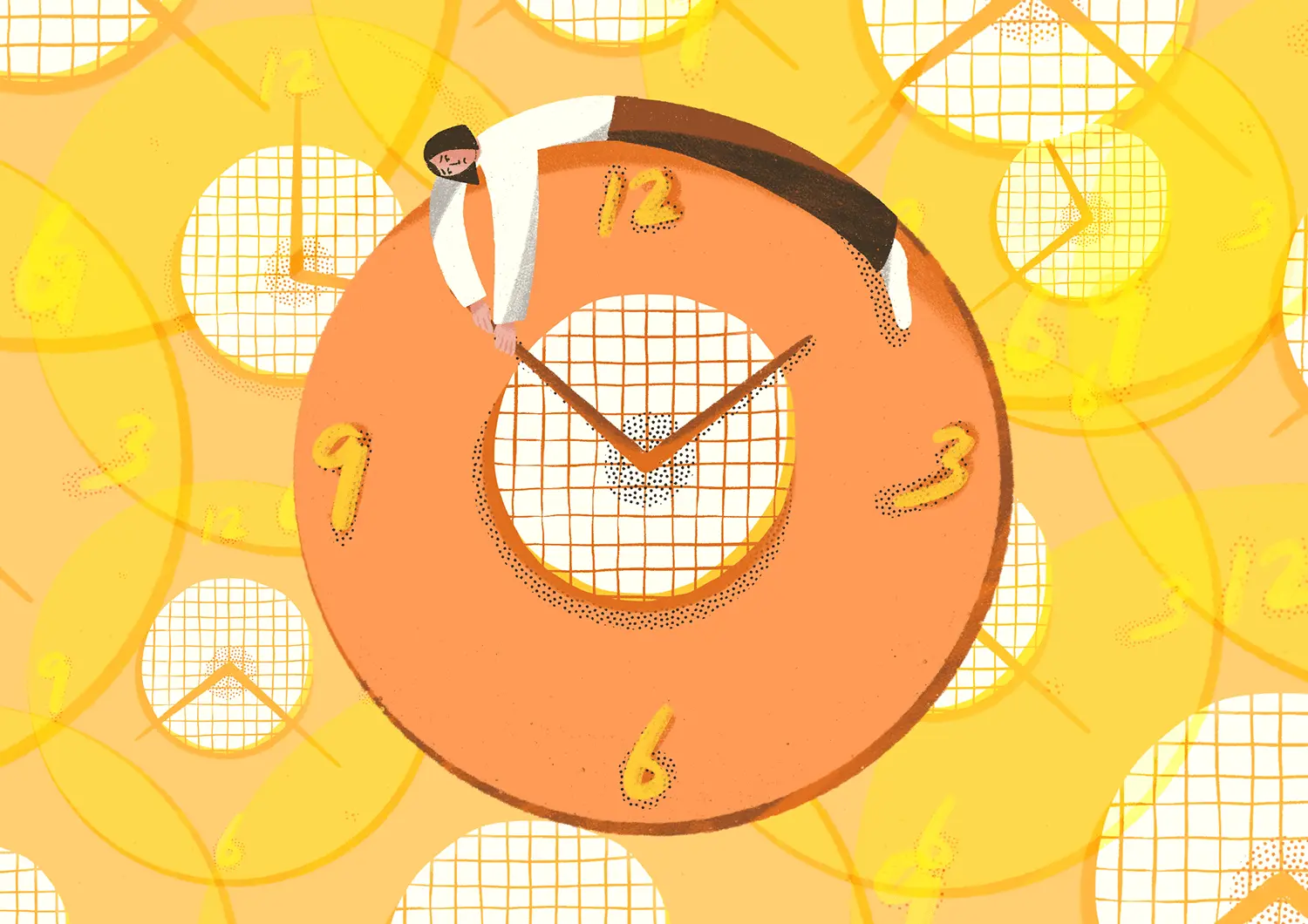Living in this extraordinary digital era, smartphones have seamlessly integrated into our daily routines, becoming inseparable companions. It's not surprising to witness kindergarteners immersing themselves in the enchanting worlds of Peppa Pig and Baby Shark on YouTube. Likewise, high school and college students eagerly follow their friends and celebrities on Instagram, utilizing it as a platform to stay connected, share the latest news, engage with current affairs, and exchange memes with their peers. Interestingly, even the older generation has enthusiastically embraced the digital landscape, finding joy in listening to nostalgic oldies and staying informed through current affairs podcasts on YouTube.
What about you? Ever pay attention to how much time you spend online every day? In the second quarter of 2023, global internet users were clocking in an average of 6 hours and 41 minutes on the internet daily. And get this, a whopping three hours of that was spent on social media. If we assume we're getting a solid 8 hours of sleep (fingers crossed), it means we're devoting around a fifth of our waking hours to scrolling through our social feeds.

Algorithmic Design: Catering to Our Familiarity
Scholars at Cornell University and the University of Pennsylvania conducted experiments involving more than 6,000 American students and working adults. Their objective was to identify the factors that influence our decision to continue watching media instead of engaging in other activities. They discovered three key factors that significantly impact this choice:
- Number of views: People who have watched five music videos in a row are 10% more likely to continue watching than those who have watched only one music video.
- Similarity of content: Presenting similar videos in categorised labels (e.g., educational, travel, cosmetic) so that people can clearly understand the similarity between the two makes them 21% more likely to continue watching videos.
- Watching pattern: Those who completed two tasks in a row before watching two videos were 22% more likely to continue watching videos than those who split their work and video viewing evenly.
Indeed, the three factors mentioned - number of views, similarity of content, and watching pattern - contribute to increasing the familiarity or immediate memory (accessibility) of the media in the viewer's mind. This heightened familiarity often leads to a desire to continue watching similar content. When we have easy access to a specific type of content and become immersed in it, it can create a phenomenon known as "The rabbit hole effect". This effect refers to the expectation that consuming more of the same type of content will bring us increased pleasure or satisfaction.
The findings of the study shed light on why we can easily get engrossed in various social media platforms while at work. These platforms leverage algorithms and big data to analyze users' browsing habits across different apps and websites. By understanding users' preferences, they recommend posts, videos, and advertisements that align closely with their interests. The goal is to entice users to click on these recommendations, generating revenue from advertisements, and prolonging their stay on the platform.
This personalized approach leads us down a path of exploration, starting from a specific topic of interest. We are guided to follow links, click on recommended videos or articles, and delve into an array of topics. Over time, this can gradually steer us away from our original focus, making us lose track of time in the process.
Furthermore, the algorithmic mechanism offers a stream of tailored, bite-sized content. It automatically suggests similar content and even enables auto-play functionality. While this reduces the likelihood of interruptions during browsing, it also diminishes the exposure to content from diverse fields and perspectives. Consequently, there is an increased risk of succumbing to the "filter bubble" or "echo chamber" phenomenon.

In the Age of Algorithms: The Growing Importance of Self-Awareness
Watching memes and videos is undoubtedly an enjoyable aspect of life. However, when these media start monopolizing the time that could be better spent on important tasks, it becomes imperative to initiate a change. Effectively bringing about this change does not mean completely abstaining from watching; instead, we can shift our focus towards how we watch.
By taking small actions aimed at promoting attitudinal change, such as reducing the similarity and repetition of the content we consume and consciously countering the allure of algorithms, we can regain control. Here are some detailed methods to consider:
- Trying to watch only one or two videos, or if you want to watch several videos in a row, choosing to watch completely unrelated content to explore potential areas of interest.
- Finding ways to interrupt the continuous viewing experience: For example, using a social media timer to prompt a break after a certain amount of usage; Posting sticky notes at your desk to remind yourself not to watch too many movies in a row; Arranging other activities in advance before engaging in media consumption.
- Being mindful of social media settings: For example, avoiding the Explore interface on Instagram, utilizing the "Snooze suggested content" feature , or YouTube's "Turn off autoplay" feature. Consciously search for the content you want to read to avoid browsing aimlessly; or consciously remind yourself to absorb diverse types of content, switching perspectives to cultivate multi-perspective thinking.
- Utilizing your phone's screen time function to managing digital usage: Record the usage of different apps and set the upper limit of usage time. Some apps help to record the number of times you pick up your phone, the average viewing time, the length of time you look at your phone while walking, etc.
Take a moment to reflect on why you find yourself spending extended periods on social media. Is it due to procrastination, the fear of missing out (FOMO) on the latest trends and updates from friends, or perhaps a way to avoid facing your work or responsibilities? By consciously analyzing your behavior, step by step, you can gain a better understanding of your mindset and the underlying factors that contribute to your excessive social media use.
Amidst the battle for our attention on social media, it's important to regain control and prioritize our own lives, taking charge of how we explore and experience the world.
References:
Woolley, K., & Sharif, M. A. (2022). Down a Rabbit Hole: How Prior Media Consumption Shapes Subsequent Media Consumption. Journal of Marketing Research, 59(3), 453-471. https://doi.org/10.1177/00222437211055403

